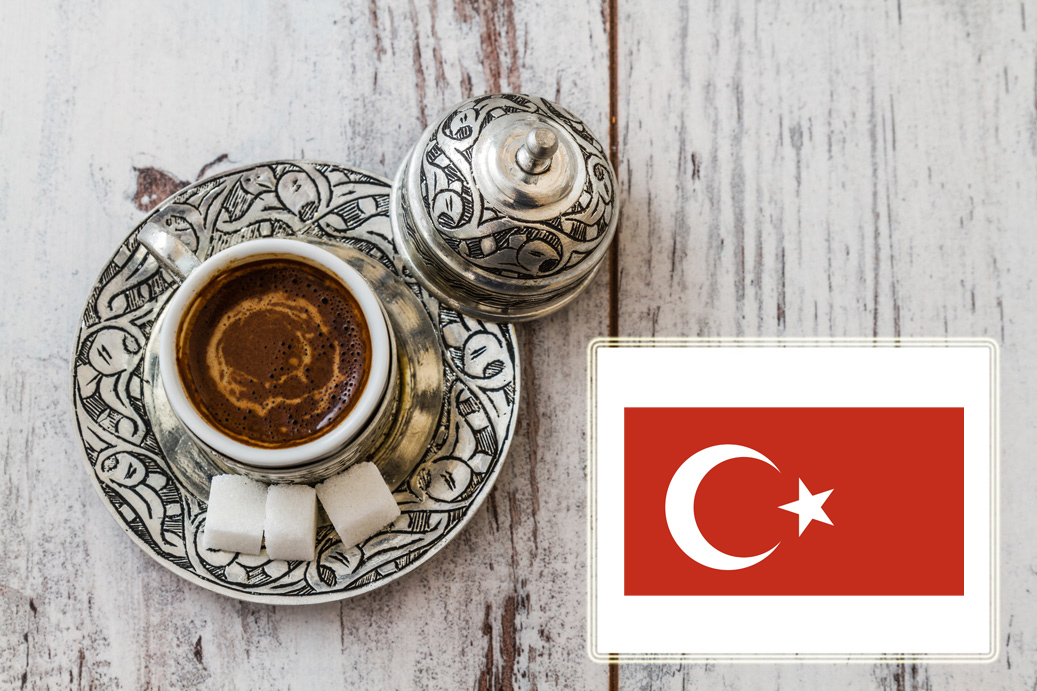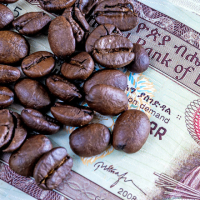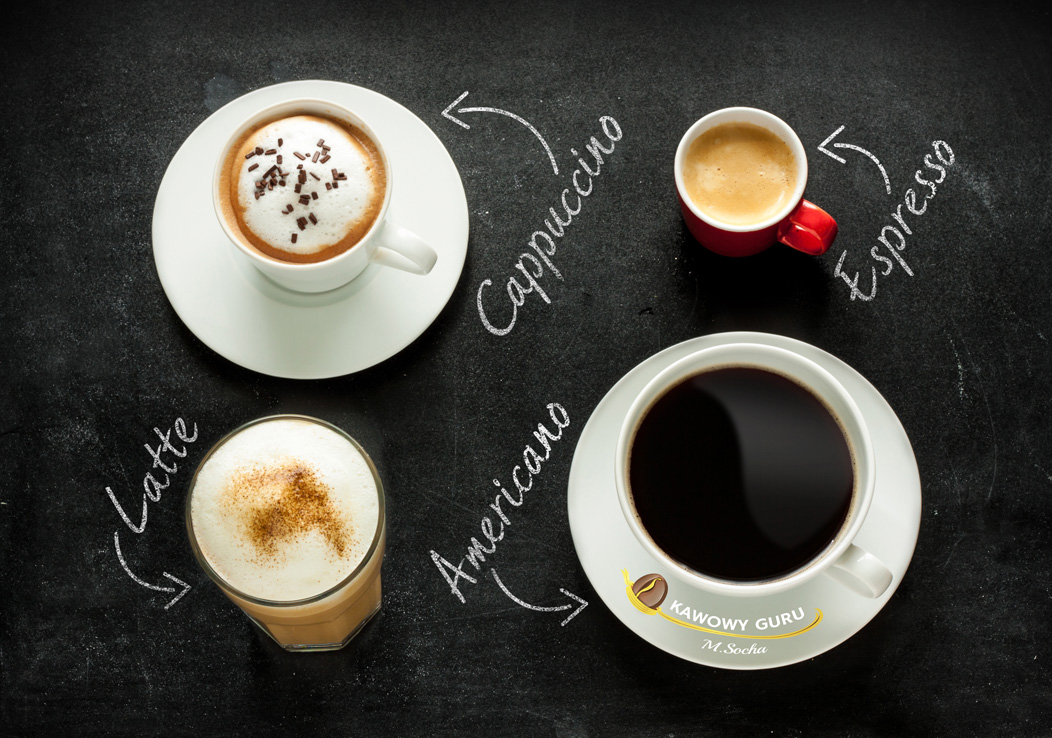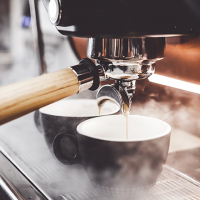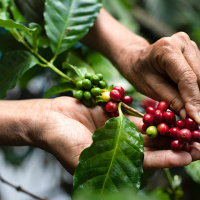Turkish coffee, a coffee prepared with a specific method, which I describe below, known for over 500 years. It’s not that popular and is a bit harder and more time consuming than making a regular coffee, but has an intense and original taste.
Before we get to making Turkish coffee, let’s go back in time. First notes describing Turkish coffee come from 15th century from Yemen (by the way, coffee travelling to Yemen was sent through harbor named Mokka, coming from the name of coffee). Over the next few hundred years, coffee spread across the whole Ottoman Empire: Cairo, Mecca, Damascus nad Constantinople. First cafes started to appear and the black drink gained many admirers. The name „Turkish coffee” isn’t popular in Turkey, Turks usually refer to it as „coffee”. If you ever visit Turkey, then ordering coffee will most likely result in getting this coffee.
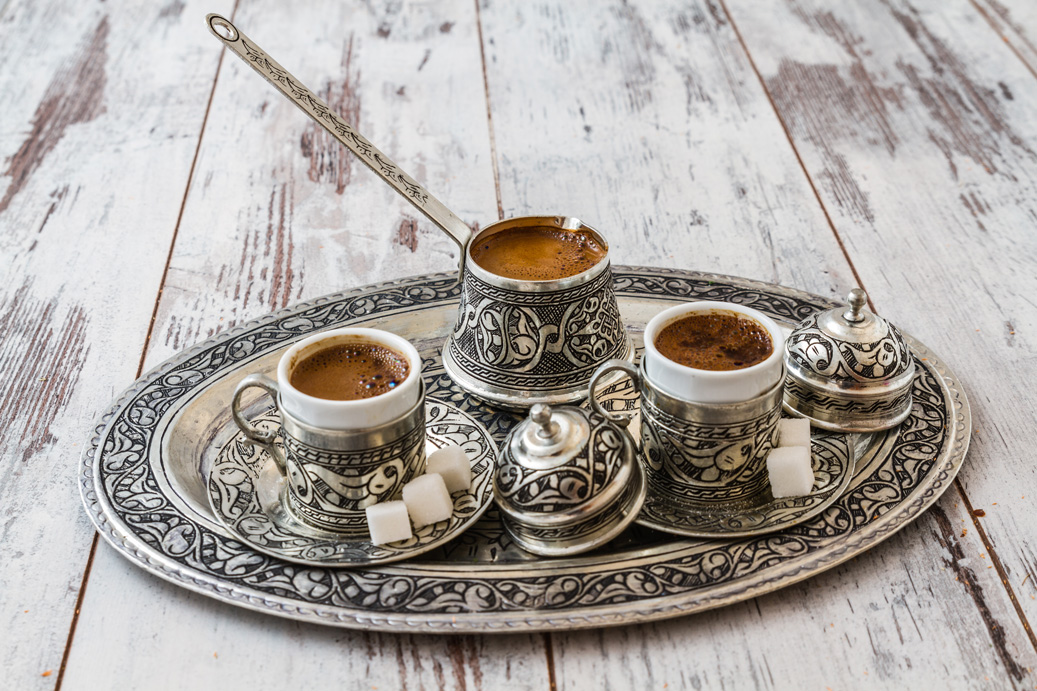
And how is this coffee made? First of all, it’s a boiled coffee. Most of you probably use coffee machines. Some of you maybe use alternative brewing methods, e.g. dripper or AeroPress (you can read more about it here). You boil it in a small pot – called cezve. It has to be very finely ground, even more finely than for espresso machine. The beans must be ground to a very fine powder. Most of house grinders can’t grind them that finely, that’s why it’s better to ask a shop or coffee roastery to do it for you.
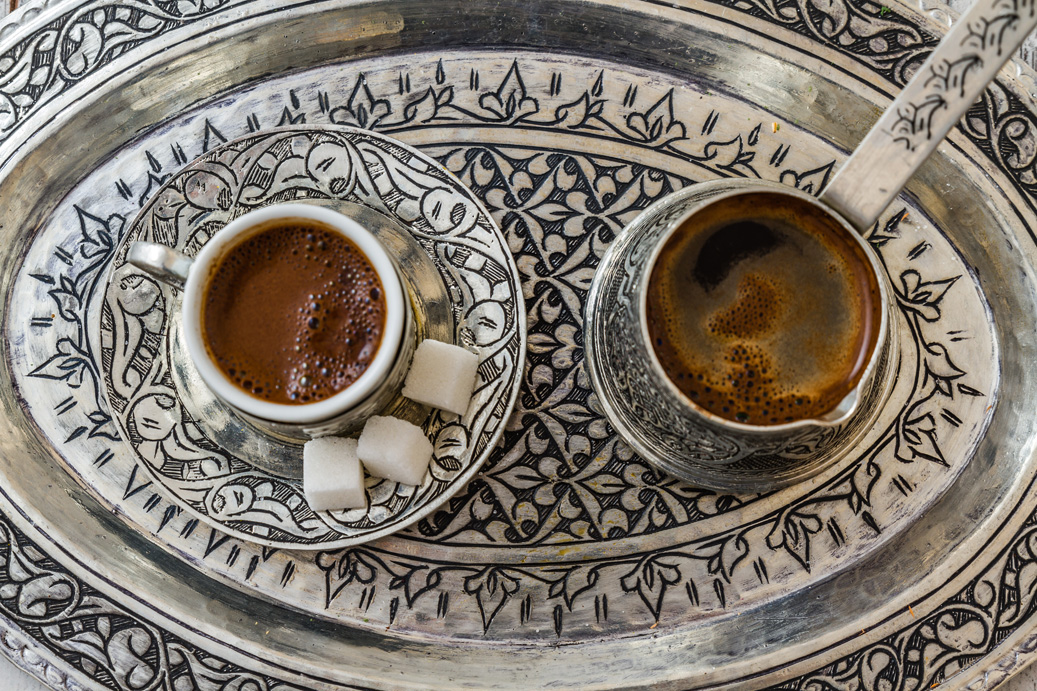
Cezve should be half filled with water, then you pot coffee in – traditionally 1 spoon for 1 cup. The drink will be strong and aromatic. You can also add (depends on personal preferences) sugar, some spices, like cinnamon or cardamon. Next you have to mix everything together (this is the only moment, that you can mix it, you shouldn’t mix it later) and put cezve on small heat. Turkish coffee should be heated slowly, until you can see foam forming on it’s surface. Stopping the heating too early results in lack of the foam, which is important for the taste. Heating it for too long results in the foam falling down and the coffee being too bitter.
Turks treat coffee like English treat tea (it’s a steretypical comparsion, but it only shows how seriously they treat coffee). They drink coffee when they meet with friends, on buisness meetings and during social rituals. Not that long ago, a fresh married wife could let her in-law parents know, what she thinks of their arranged marriage by making a coffee in a certain way. If the coffee was sweet – she was very pleased, if it was bitter – she was discouraged. Serving a coffee with salt meant insult and objection. French diplomat from the end of 18th and beginning of 19th century, Charles-Maurice de Talleyrand said that coffee should be: “black as the devil, hot as hell and swee as love”.


